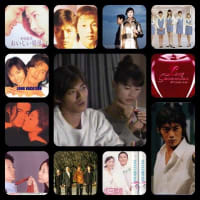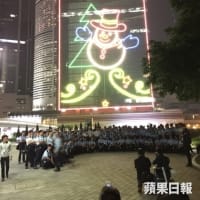Dreams That Come True, as published in Personality, (December, 1927)
Transcription
"The Dreams That Come True"
--When One who Can neither See nor Hear Finds Joy in a Flower Garden
by Helen Keller
IV
There was another world of beauty for me in those gardens in the evergreens. There is plenty of room for them, and consequently they have a chance to grow unhampered. Every kind of conifer which will make friends with our climate has been brought there, and planted where it shows to the best advantage. My fingers revelled in many new forms from a superb giant pine with thick, bright green needles to an exquisite small white pine with thin, soft foliage, almost like a silk fringe. A light breeze followed us as we passed from one to the another, and I listened to them as they played the invisible violins of the air -- an inexpressibly restful music. Then there were the firs and spruces John Ruskin had so enthusiastically described with their branches extending in magnificent ridge upon ridge and the sunbeams dancing in and out, offsetting the darker greens. I have always loved evergreens with a deep love. There is nothing in nature which has such a potent, deep-rooted appeal for me. They seem human, and at the same time they symbolize whatever is imperishable and uplifting in life -- hope, courage, and serene faith. Their unfading greenness and fragrance breathe immortality, and are a blessing to me amid the grim monotony of winter. It may be imagined how gratified I was when Mr. Doubleday said that he also found peculiar happiness in the companionship of pines and firs, and had worked for many years to have that wonderful retreat of evergreens made possible right in the heart of a restrictive, machine-driven civilization. He also told me how several men who had visited him, among them John Burroughs and John Muir, had planted a tree in that garden.
Truly, I left those gardens immensely refreshed, with a crowd of bright thoughts tumbling out of their hidden nests and burrows to put me in the right mood for my work again.
Such is the world I live in, and yet how few people understand the simplest truths about it! I have learned many things which stand out boldly in my mind, and when I think of some of them, I wonder, and say to myself, "Do other people have similar thoughts and emotions? Are they as conscious as I am of the life of the spirit?" From what the people tell me I must needs (sic) conclude that physical limitations somehow strengthen and clarify intellectual processes. I confess, it appears paradoxical that weakness should develop strength. Still, there is scriptural authority for this belief. St. Paul says, "When I am weak, then am I strong" -- which is an exceedingly comforting thought to those who are physically damaged.
The explanation undoubtedly is that limitations drive one inward for diversion, with the result that one's own thoughts become absorbingly interesting. The small events of daily life take on extraordinary importance when Celestial Artist combines them with spiritual elements in the Laboratory of Mind. It is a miracle how an incident of no particular value comes out of the mental crucible beautiful and precious. Little by little the transformation and classification of ideas take place in the brain, where are registered the beings and the events which give delight to circumscribed lives. Stored in the memory, they furnish plentiful entertainment for solitary hours; and that is why I never feel "deaf blind." I left that horrible abyss of hopelessness long, long ago.
My life has been happy because I have had wonderful friends and plenty of interesting work to do. I seldom think about my limitations, and they never make me sad. Perhaps there is just a touch of yearning at times; but it is vague, like a breeze among the flowers. The wind passes, and the flowers are content. But into the sweet night of my individual blindness has come the call -- the urge of others' need. It is as persistent as the love-note which the mother-bird hears when her nestlings are in trouble, and I know that it will never cease until I have done the utmost of which I am capable to help others break down the walls of darkness and pour the sweet waters of joy into the deserts of silence.
source:http://www.afb.org/Section.asp?SectionID=1&TopicID=193&SubTopicID=17&DocumentID=1190
(The end)
<rdf:RDF xmlns:rdf="http://www.w3.org/1999/02/22-rdf-syntax-ns#" xmlns:trackback="http://madskills.com/public/xml/rss/module/trackback/" xmlns:dc="http://purl.org/dc/elements/1.1/"> <rdf:Description rdf:about="http://blog.goo.ne.jp/teppei-riko/e/797ce52c5bdb79f8846ed8a39a886fc1" trackback:ping="http://blog.goo.ne.jp/tbinterface/797ce52c5bdb79f8846ed8a39a886fc1/c9" dc:title=""The Dreams That Come True"(3) - by Helen Keller" dc:date="2010-10-20T07:46:05+09:00" dc:description="Dreams That Come True, as published in Personality, (December, 1927) Transcription "The Dreams That Come True"--When One who Can neither See nor Hear Finds Joy in a Flower Gardenby Helen Keller " dc:identifier="http://blog.goo.ne.jp/teppei-riko/e/797ce52c5bdb79f8846ed8a39a886fc1" /> </rdf:RDF> -->



















